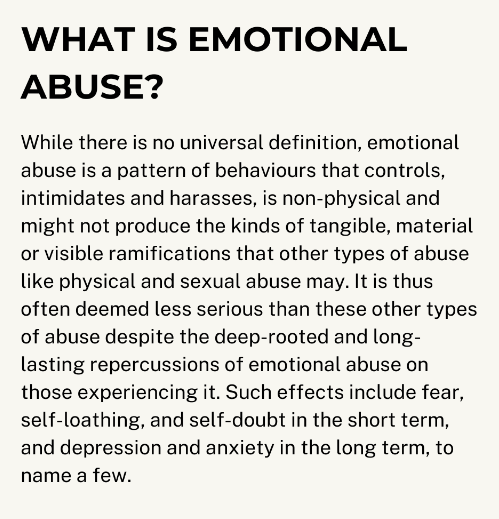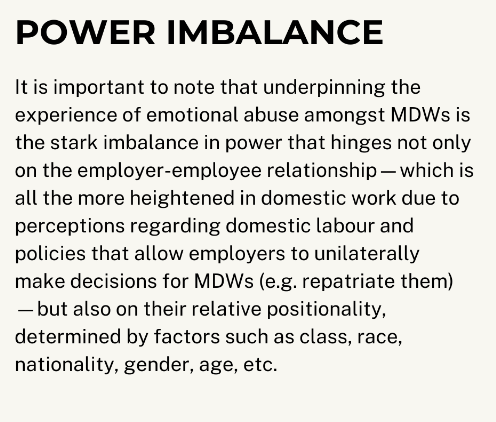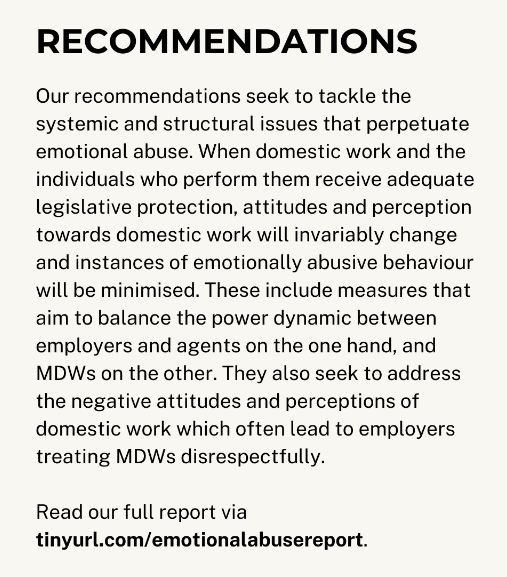A report from the Humanitarian Organization for Migration Economics (HOME) is shining a spotlight on the emotional abuse migrant domestic helpers may at times be subjected to in Singapore.
HOME’s report, titled “Invisible Wounds” was released on June 22 (Wednesday) and tackles the non-physical abuse maids experience, including terrorizing behaviour, control, and degradation.
Emotional abuse may not leave the kind of visible marks on a helper that sexual or physical abuse may, which means that some perceive it to be less serious. However, emotional abuse may leave “deep-rooted and long-lasting repercussions.”
“Such effects include fear, self-loathing, and self-doubt in the short term, and depression and anxiety in the long term,” reported HOME.


The “invisible” nature of the effects of the abuse makes it challenging to provide better protection for helpers.
The crux of emotional abuse is the “stark imbalance of power” in the relationship between the helper and the employer.


Some examples of the emotional abuse helpers experience are the following:
One maid worked for 16 hours straight but did not feel that she could rest since there were a dozen CCTVs in the residence of her employer, which included one in the room she was given for sleeping.
Another helper was frequently told by her employer that the Philippines is “same like garbage” and is “very cheap.”
When one maid asked to be transferred, her employer frightened her by threatening to harm the maid’s family. “I will send police, hurt family,” she was told.
One maid was told to continually look down and not make eye contact with other people, as well as forbidden from talking to her employer’s neighbours. The employer also took her mobile phone and only allowed her to use it once a month.
Another helper was often told that she was “just a maid.” Her employers told her that they’d send her back home to the Philippines if she attempted to go back to her employment agency.
The report was based on discussions with 22 helpers who had sought shelter with HOME and lived at the organization’s facility from July to September 2019, most of whom are Filipino nationals. It is also based on HOME’s data from around 1,800 cases between 2019 and 2021.
“This latest report aims to understand the patterns of emotional abuse that MDWs experience and the effects they have on MDWs, and to advocate for a rights-based approach in thinking about and addressing emotional abuse in domestic work,” HOME writes.


The full report, with the organization’s recommendations for addressing the issue, may be found here.
/TISG

